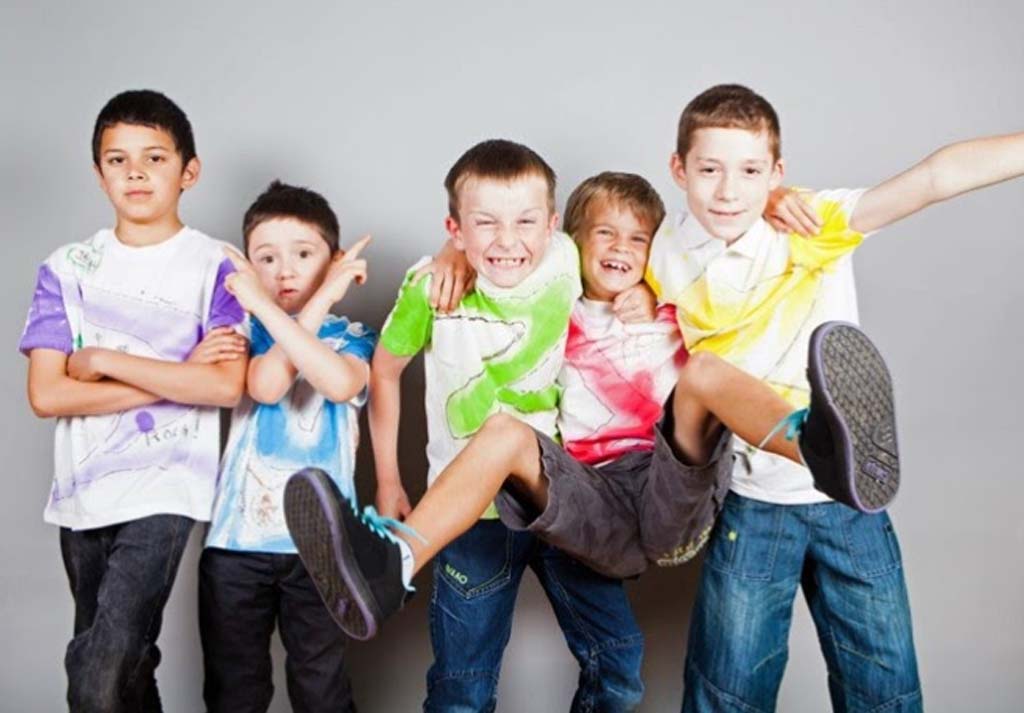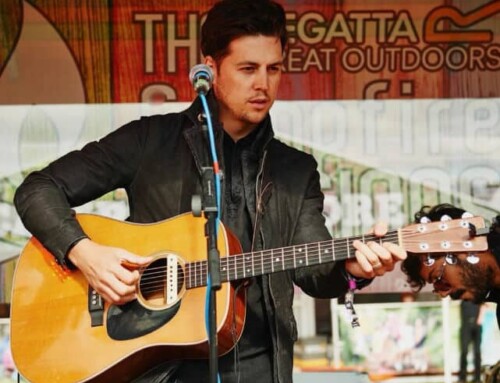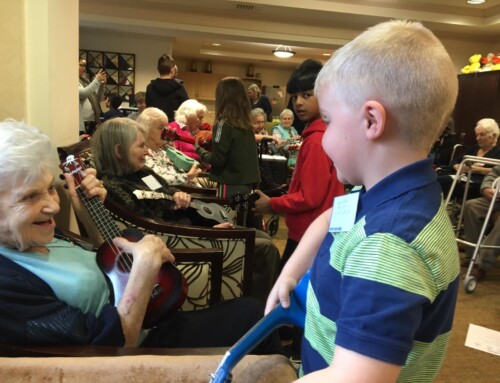
At Front Row Music, we believe that music has the power to completely transform our lives.
When we teach children how to play a guitar riff or a song on the ukulele, we know that what we are offering them is much more than a party trick or a cool new skill. We know that music is not only fun and joyful for children, but a tool for growth and development inside the classroom and out of it.
In this article, we will look at how music helps children with mental, social and emotional growth – ultimately helping them develop into strong, creative and independent individuals!
Music and Brain Development
We know that scientifically, a child’s mind is naturally predisposed to understand sound from inside the womb. This is because they hear sounds through the amniotic fluid, and so they come into this world with a nervous system that is prepared to comprehend sound (the same is true of deaf children, except that the concept would be extended to vibrations). So when we introduce babies to sound and playing musical instruments, we are introducing them to something their brain is already prepared for.
When teaching children guitar, we sometimes talk about how a student almost needs two brains to learn the coordination involved in using one hand on the fretboard of the guitar and one hand on the strings.
However, it is actually true that playing music stimulates the part of your brain that communicates between the left and right sides of the brain. This part is called the corpus callosum, and when a child learns to play an instrument, this part of the brain thickens and strengthens. It’s been shown that the strengthening of these nerve fibres actually helps with processing information for language and reading, and would help a child’s intellectual performance in the classroom and other lessons. With its focus on patterns and sequencing, it can also help children grow in their mathematical skills.
It’s amazing to think that playing music, spending some time learning the ukulele or the piano, can actually change the physicality of a child’s mind and help their brain to develop mentally!
Music and Social Development
Music doesn’t just help a child’s brain develop and grow in positive ways, it also helps them develop socially.
Studies show that whilst regularly attending music classes improves how the brain processes speech and language, it also shows how students who engage with regular music lessons become more active participants in their classrooms.
At Front Row Music, we know how important music can be for bringing people together. When we start teaching a new group of children music in a school, we might see frustration and irritation from children who struggle at first. We might see how the group isn’t quite cohesive yet, or how some children struggle to feel part of the group. Then, over time, we see how playing music together as a group, by learning to listen to one another, children gain confidence and develop socially.
According to research, this is particularly true for children with neurodivergent needs. 12 percent of the therapy used to help autistic children manage their social interactions involves music, and we have certainly seen children who struggle with communicating with others develop leaps and bounds thanks to learning music.
One of our student’s parents wrote to us to say that her daughter, a previously introverted child who struggled socially, has been encouraged to come out of her comfort zone by playing music and that now, she is the life and soul of family gatherings and enjoys playing her guitar for her relatives!
Music and Emotional Development
However, this kind of development extends beyond social interactions. Learning music also helps children develop emotionally.
There are so many lessons that we learn from music that help us with our mental wellbeing. Here are our top five emotional lessons from Front Row Music that equip children for life.
Cognizance
One of the most powerful emotional lessons children learn in music is how to recognise and become aware of their emotions. As they learn how major chords are ‘happy’ and minor chords are ‘sad’, they learn how music can give them a language to express their emotions in.
Patience
A child has to learn patience with the process of learning music. They learn as well that their patience will be rewarded with a feeling of joy when they don’t give up, which leads on to …
Perseverance
hen a child perseveres, they learn mental discipline. One of the most powerful moments of teaching is when a child realises that if they continue to keep trying, if they push through and don’t give up on themselves, they can succeed.
Resilience
Whilst pursuing a career in the music industry definitely requires resilience, even learning a ukulele or a piano in primary school teaches children resilience. As they develop callouses on their fingertips or learn how to stretch for the keys, they understand that sometimes, part of perseverance can be uncomfortable.
Confidence
When a child learns that they can do something in their own strength with their own power and will, it grows their confidence. Confidence is perhaps the most frequent emotional development we see in a child at Front Row Music, and the most frequent feedback given to our tutors from parents is that a child has increased in confidence.
Bringing it all Together
Music helps children grow mentally, socially and emotionally but scientific research shows us that these benefits only come from actually learning to play a musical instrument or being involved in making music together (such as learning to sing in a choir).
Learning to play a musical instrument allows children to hear sounds that they would not be able to hear otherwise. This is called “neurophysiological distinction” and this ability is only developed through playing music rather than listening to it.
Whilst there are therapeutic benefits to listening to music (for example studies show us that it can calm us down, lower our blood pressure and elevate our mood) it is only making music that really grows our children mentally, socially and emotionally. In that way, it’s sort of like exercise – we have to actually do it ourselves to feel the benefits inside our bodies!
Top 5 Tips for Music Engagement
So how can we help our children access these benefits? How can we help them grow into musical children, inside the classroom and out of it?
Adam, our Tutor Manager at Front Row Music has shared his top five tips for engagement that you can use in your classroom or even at home to encourage musicality!
1. Use backing tracks and original recordings to help children learn!
At Front Row, we love to teach children to play songs they already know and can sing along to. Why not teach a child how to remember something in the classroom or at home by setting it to a tune they know really well? Why not learn the times tables to Stormzy? It’s one way to make maths fun!
Check out the Front Row Music Jukebox to access 100+ free backing tracks for all your favourite tunes!
2. Encourage children to practice instruments and music with incentives!
At Front Row Music, we use tally charts to incentivise perseverance and patience. This helps students have a sense of their progress and development.
3. Build an improvisational environment!
Improvisation is one of the best tools we have for building confidence and for getting a child to explore musical expression. We can encourage it by playing improvisational music games where we set a regular beat and then all take turns improvising tunes inside of it.
4. Grow musical knowledge and attunement!
A game we like to play in our sessions is when we play a few of the opening chords of a famous song and the children have to guess which song it is. This is a great game for encouraging musical discernment and helping children recognise patterns. You can play it without a musical instrument by using instrumental versions of popular songs or even just by humming!
5. Create musical moods!
One of the best things about teaching children to play music is when they start to use it to express their moods. We can encourage that by using music to undercurrent feelings or situations. When a child is feeling lonely or tired, ask them to pick a song that ‘feels right’ to them right now. In the classroom, try underscoring quiet times and reading times with quiet, reflective music. Let’s help children develop a musical language of self-expression!
Final Thoughts
Ultimately, that is the beauty of music that we embrace at Front Row Music. No matter where a child is from or what they have been through or what their behaviour is, music is a universal language. It’s a way that we can connect with children but also a way that they can use to connect with others.
We also know from our experience that a musical child is not just a child who grows mentally, socially and emotionally. A musical child is a happy child, and that is what we hope for all of the children we work with, that they will grow and thrive, and be happy.
Henry Wadsworth Longfellow, a famous American poet once said “music is the universal language of mankind.” In teaching children that language, we are helping them grow into stronger, happier individuals for the future.
About Front Row Music
Front Row Music specialises in primary school music tuition, teaching thousands of students in schools across the globe. Founded by British recording artist and musician, Dave Fidler, Front Row Music is committed to making music as fun and accessible for young people as possible, using songs that they already know and love.
Whether it’s guitar, ukulele, keyboard or beyond, Front Row Music’s lesson plans are specially designed to encourage and support students as they grow both in talent and passion for music.
Follow Front Row Music on Facebook, Instagram, YouTube, Twitter, and LinkedIn.
If you are interested in having Front Row Music teach at your school, simply fill out this contact form to receive an information pack.
If you are interested in becoming a franchisee, you can learn more and request an information pack here.
References
“This is how music can change your brain” by Melissa Locker for Time Magazine https://time.com/3634995/study-kids-engaged-music-class-for-benefits-northwestern/
“Music therapy: the power of music for health” by Zoe Cormier for Science Focus https://www.sciencefocus.com/the-human-body/the-power-of-music-for-health/




